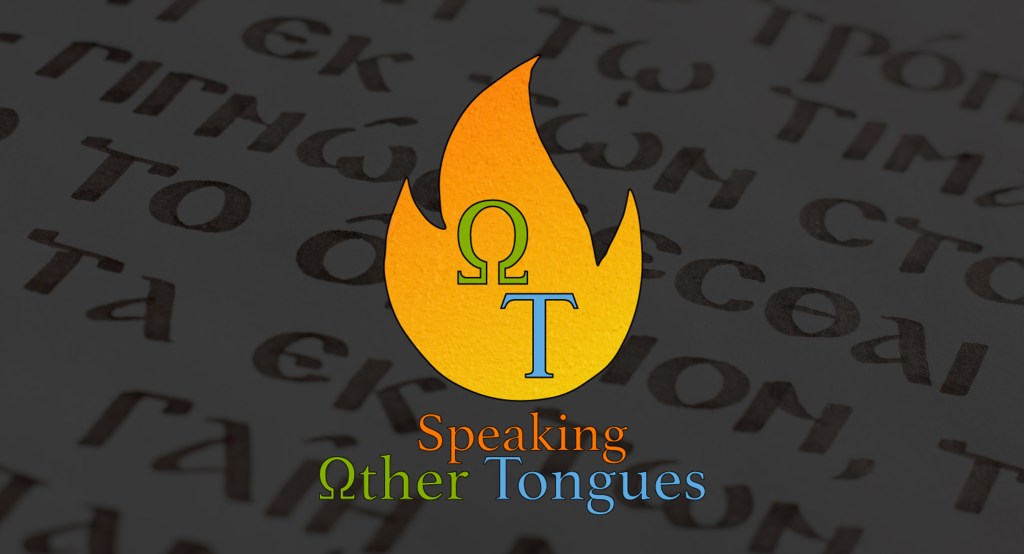A couple weeks ago I wrote an article, Our Father and Our Lord, discussing the distinction between Jesus and God the Father. This dimension of our Christology is so important, and I really feel like it is underemphasized by a lot of Oneness believers. By focusing on Jesus’ true humanity we gain so much. We find in him our example; he teaches us how to pray; he shows us what it looks like to overcome sin; he demonstrates complete devotion and submission to his God and Father. All of these things are possible because he is a genuine human, the Son of God, a different person from the Father.
And yet, by focusing too much on his true humanity, we risk overlooking (or outright denying) his complete deity. Some people are so trapped in an either/or mentality that they cannot understand “the mystery of godliness” (1Tim3:16). Jesus is not either God or man—Jesus is both God and man! For today’s “Titus Tuesday” post, I want to take a look at one of the clearest passages in the entire Bible about Jesus being God.
Looking for that blessed hope, and the glorious appearing of the great God and our Savior Jesus Christ; who gave himself for us, that he might redeem us from all iniquity, and purify unto himself a peculiar people, zealous of good works.
(Titus 2:13-14)
Let’s focus our attention on the phrase “the great God and our Savior Jesus Christ.” In order to explain this phrase completely I will have to get a little technical with the Greek grammar, but the beauty of the theology is worth the technicality. In Greek, this phrase is τοῦ μεγάλου θεοῦ καὶ σωτῆρος ἡμων Ἰησοῦ Χριστοῦ (tou megalou theou kai sotēros Iesou Christou). Because of the way this sentence is set up in the Greek, “God” and “Savior” must both refer to the same person—Jesus Christ. Jesus is our great God, and he is our Savior.
The Greek grammar for this phrase is known as a Granville Sharp construction§, named after the man who first wrote about it. According to Sharp’s rule, when two singular personal nouns are joined by the word “and,” and only the first noun has the Greek word for “the” in front of it, both of those nouns refer to the same person. Ιf I said, “The captain and the commander,” then I am talking about two people—one person who is the captain, and a different person who is the commander. But if I said, “The captain and commander,” I am referring to only one person—the captain, who is also the commander.
Granville Sharp’s rule is entirely without exception in the New Testament. Here are a few examples of this construction.
- Blessed be the God and Father of our Lord Jesus Christ, the Father of mercies and God of all comfort (2Cor1:3)
- Consider the Apostle and High Priest of our profession, Christ Jesus (Heb3:1)
- But grow in grace, and in the knowledge of our Lord and Savior Jesus Christ (2Pet3:18)
- Titus…is my partner and fellowhelper concerning you (2Cor8:23).
Even though not all of these sentences look like a Granville Sharp construction in English, they all follow the identical pattern as Titus 2:13.
In his humanity, Jesus is distinct from God the Father. As a man Jesus can pray to God, be anointed by God, be the Son of God, and worship God. But when we talk about the divine nature of Jesus, we confess him as “the great God,” the one God of the Bible.
This is why Jesus said, “I am in the Father, and the Father in me” (Jhn4:10-11). Paul told Timothy that “God was manifest in the flesh” (1Tim3:16). The epistle to the Romans calls Jesus “the God who is over all things, blessed forever” (Rom9:5). It is perfectly valid to recognize Jesus’ true humanity—he is like us in every way except sin. And yet we must also confess that he is the one God of the Bible, seen by Abraham and Isaiah.
This is the magnificence of the incarnation. It is staggering to think that the one God of the Bible could become expressed in a man: full deity in complete humanity, Creator invading his creation as a creature! Jesus is a man, but he is not a mere man. He is our great God, and he is our Savior. Without controversy, great is the mystery of godliness!
Note
§The Granville Sharp construction is also known as a TSKS construction, as an acronym for the necessary parts and order of the construction.
T—Greek definite article: “the”
S—Substantive: anything that may function as a noun
K—the Greek word for “and”: καὶ/kai
S—Substantive: anything that may function as a noun
Knowing ancient Greek is an indispensable tool for defending God’s truth against false teaching and misunderstanding. After all, it is the language God chose to write the New Testament! If you’re ready gain this valuable skill, visit my website speakingothertongues.com to start learning ancient Greek!

Good teachings with great revelations
LikeLike
Thanks for reading, Purity! Are there any topics that you would like to see us cover in the future?
LikeLike
Excellent…tnx!
LikeLike
Thanks for reading, Milles! What do you think our next series should be about?
LikeLike
A great read.
LikeLike
But what about Matthew 28:19? “…in the name of THE Father and of THE Son and of THE Holy Ghost”?
LikeLike
What about it? The verse says “in the name” not “in the names” 🙂
LikeLike